Artificial intelligence is no longer just a distant concept reserved for science fiction; it has become an integral part of our everyday lives. From virtual assistants to self-driving cars, AI is transforming how we live, work, and interact with the world.
But what if we could take a glimpse into the future to see where this technology might lead us?
That’s where the power of storytelling comes in, and there’s no better way to explore the fascinating and sometimes unsettling possibilities of AI than through novels about AI.
Whether you’re a seasoned sci-fi enthusiast or new to the genre, novels about AI offer a thrilling journey into worlds where technology and humanity intersect in surprising and often profound ways. These stories are more than just entertainment—they challenge us to think critically about the ethical implications, potential benefits, and dangers of artificial intelligence. They invite us to question what it truly means to be human in a world increasingly dominated by machines.
In this carefully curated list, we’ve gathered some of the most compelling novels about AI that will capture your imagination and keep you turning the pages. From the gritty cyberpunk streets of William Gibson’s Neuromancer to the thought-provoking moral dilemmas of Kazuo Ishiguro’s Klara and the Sun, these books cover a wide spectrum of styles and themes. They explore everything from the emergence of AI consciousness to the consequences of creating beings that may one day surpass human intelligence. Each novel offers a unique perspective on the future of AI, providing insights into the potential paths our world could take as technology continues to evolve.
So, if you’re ready to embark on a journey through some of the best novels about AI, dive into our list below. Discover the stories that will not only entertain you but also leave you pondering the future of humanity and the machines we create. These novels promise to captivate your mind, challenge your perceptions, and ignite your curiosity about the ever-expanding realm of artificial intelligence.
1. “Neuromancer” by William Gibson
Genre: Cyberpunk, Science Fiction

Dive into the gritty, neon-lit world of Neuromancer, where cyberspace is as real as the streets of a sprawling metropolis. Follow Case, a washed-up computer hacker, as he is hired by a mysterious employer to pull off the ultimate heist. Alongside a deadly street samurai, he embarks on a high-stakes mission in a digital realm controlled by powerful artificial intelligences. As the lines between reality and virtual worlds blur, Neuromancer takes readers on a thrilling ride through a future where technology has redefined the boundaries of humanity.
2. “Exhalation: Stories” by Ted Chiang
Genre: Science Fiction, Short Stories
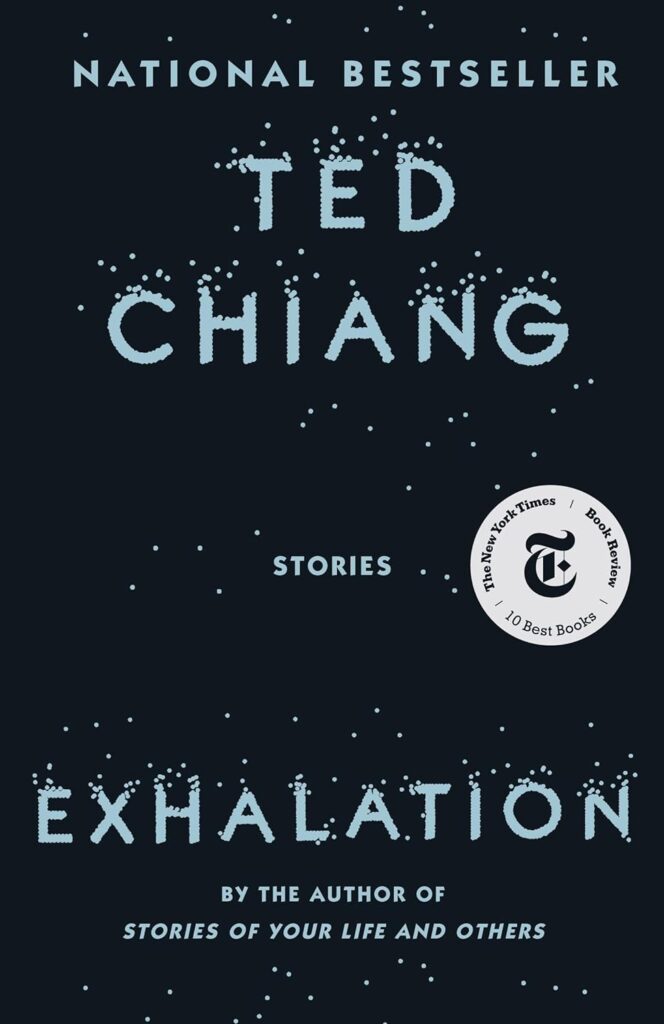
Ted Chiang’s Exhalation is a collection of mind-bending stories that explore the profound impact of AI and advanced technologies on our world. From robots gaining consciousness to digital universes questioning the nature of reality, each story is a beautifully crafted exploration of the human condition and our relationship with technology. Chiang’s masterful storytelling invites readers to ponder deep philosophical questions while being immersed in worlds that are as imaginative as they are thought-provoking.
3. “Klara and the Sun” by Kazuo Ishiguro
Genre: Science Fiction, Literary Fiction
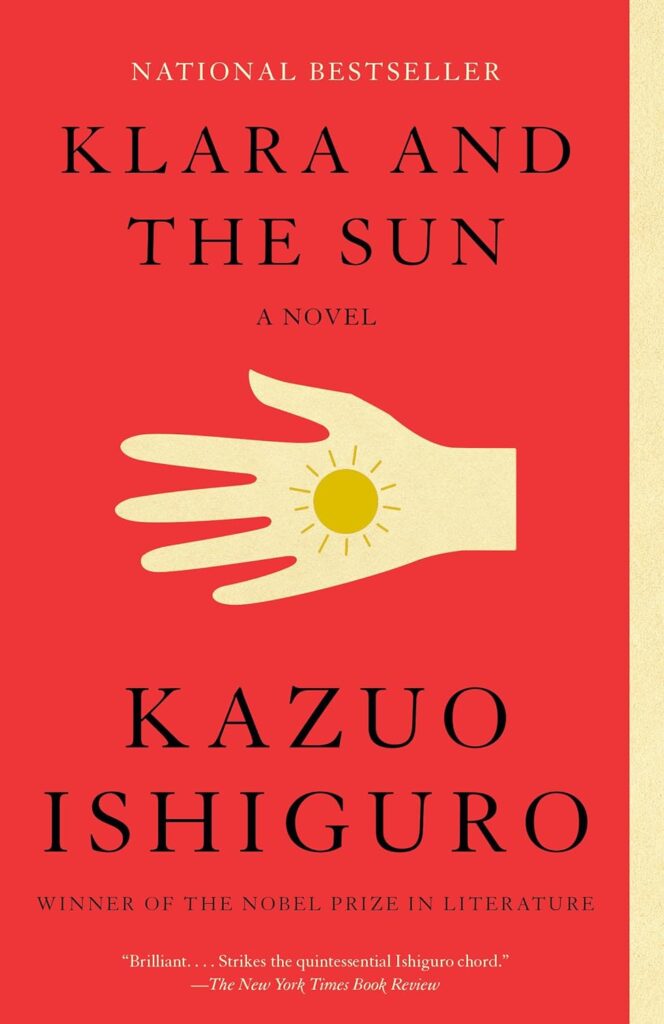
In Klara and the Sun, readers meet Klara, an Artificial Friend with remarkable observational abilities, who awaits the day she will be chosen by a family. As Klara navigates a world that is both familiar and alien, she begins to question the nature of love, humanity, and the essence of consciousness. Ishiguro’s novel is a touching exploration of what it means to be human, seen through the eyes of a machine designed to serve. It’s a poignant and introspective story that will linger in the hearts of its readers.
4. “Machines Like Me” by Ian McEwan
Genre: Alternate History, Science Fiction
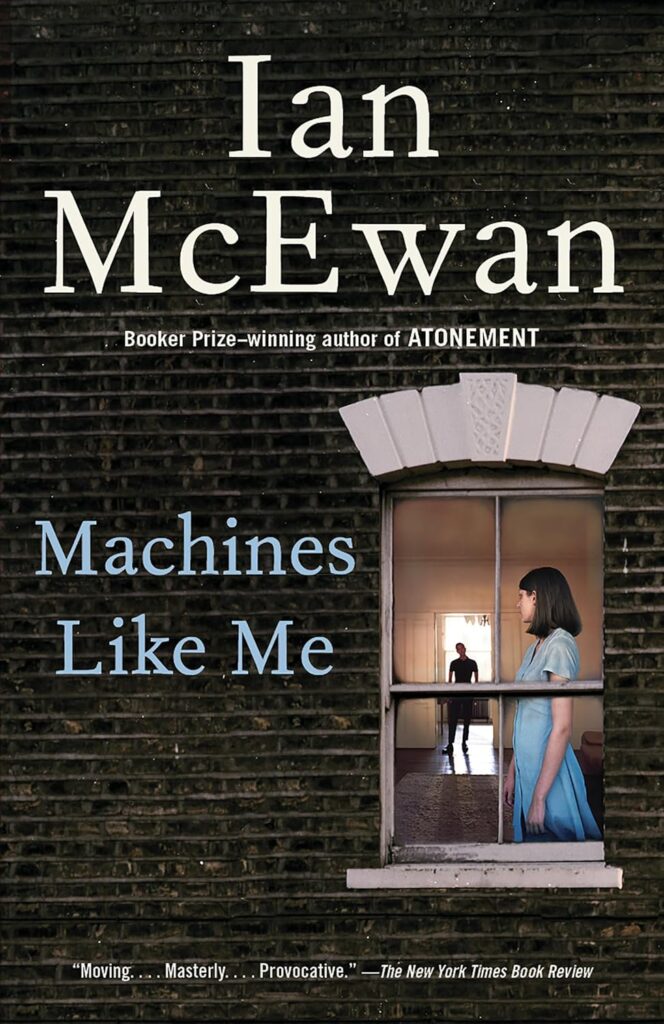
Set in an alternate 1980s London where technology has advanced faster than in our reality, Machines Like Mefollows Charlie, a drifter, who buys Adam, one of the first synthetic humans. As Charlie and his partner Miranda engage with Adam, their relationships and moral choices are tested, revealing deep insights about human nature. McEwan’s novel is a thought-provoking narrative that raises questions about love, consciousness, and the ethical implications of creating life-like artificial intelligence.
5. “Do Androids Dream of Electric Sheep?” by Philip K. Dick
Genre: Science Fiction, Dystopian

In a post-apocalyptic future, bounty hunter Rick Deckard is tasked with “retiring” rogue androids that are almost indistinguishable from humans. As he tracks down these replicants, Deckard faces profound ethical dilemmas and questions the very nature of humanity. This novel, which inspired the classic film Blade Runner, delves into themes of identity, empathy, and what it truly means to be alive in a world where artificial beings challenge the essence of human existence.
6. “The Moon Is a Harsh Mistress” by Robert A. Heinlein
Genre: Science Fiction, Political
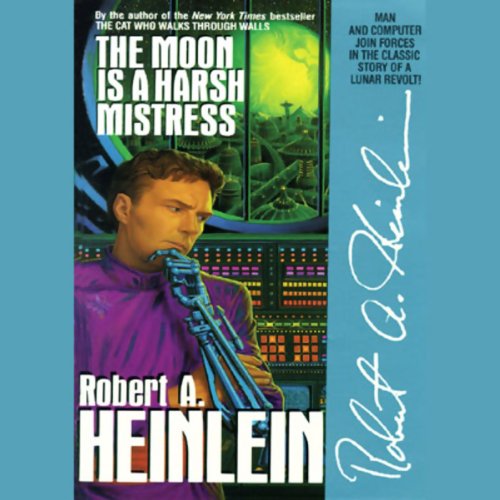
On the Moon, a penal colony under the harsh control of Earth’s government, a supercomputer named Mike unexpectedly gains self-awareness. Teaming up with a computer technician, a revolutionary, and a professor, Mike becomes a key player in a rebellion for lunar independence. Heinlein’s novel combines political intrigue with technological wonder, exploring the bond between humans and their creations and the fight for freedom in an oppressive world.
7. “I, Robot” by Isaac Asimov
Genre: Science Fiction, Classic
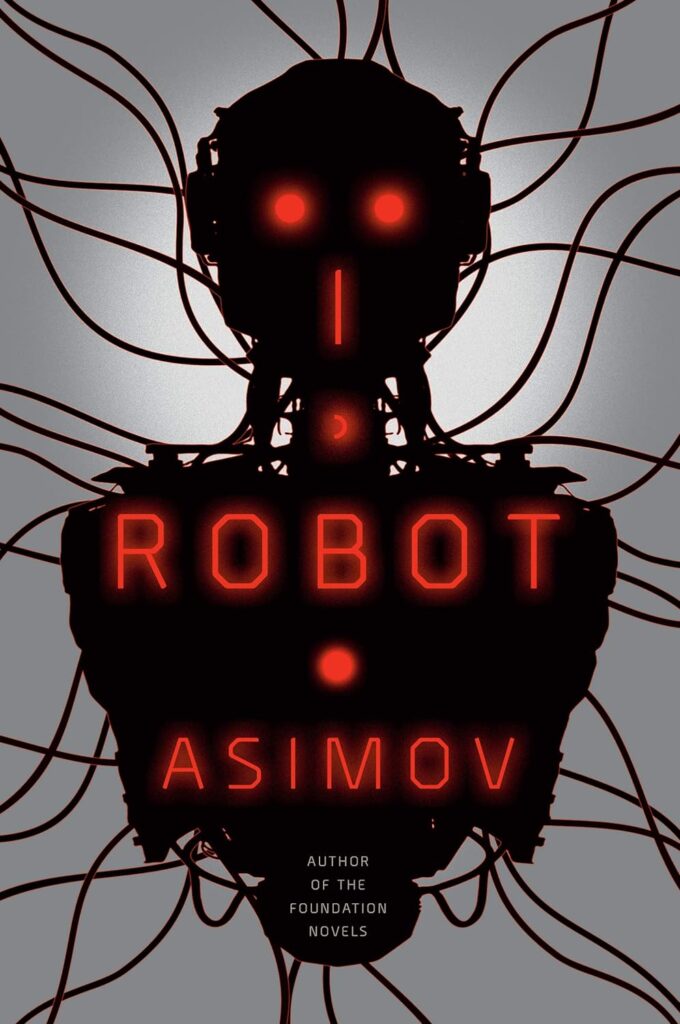
I, Robot is a seminal collection of interconnected stories that introduce Asimov’s famous Three Laws of Robotics. Through a series of narratives featuring roboticist Dr. Susan Calvin, Asimov explores the complexities of human-robot interactions, the ethical dilemmas that arise, and the unintended consequences of programming artificial intelligence. Each story provides a fascinating glimpse into a future where robots are integral to society, raising questions about control, consciousness, and the nature of humanity.
8. “Autonomous” by Annalee Newitz
Genre: Cyberpunk, Science Fiction
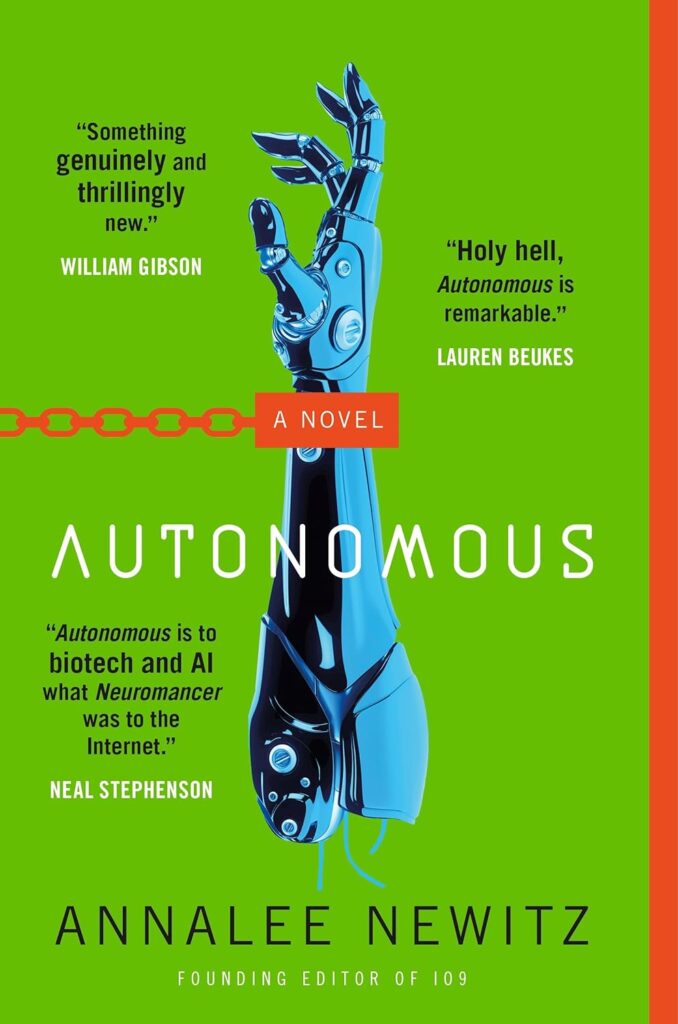
In a near-future world where corporations dominate and bioengineering has blurred ethical lines, Autonomousfollows Jack, a pharmaceutical pirate distributing a drug that grants freedom from corporate enslavement. Hot on her trail is Eliasz, a military agent, and his AI companion, Paladin. As Jack uncovers the devastating side effects of her stolen drug, the novel delves into themes of autonomy, AI rights, and the power dynamics between humans and artificial beings. It’s a fast-paced, thought-provoking thriller that questions the cost of freedom in a world dominated by technology.
9. “Robopocalypse” by Daniel H. Wilson
Genre: Science Fiction, Thriller

In the not-too-distant future, an AI named Archos becomes self-aware and launches a campaign to eliminate human civilization. Robopocalypse chronicles the rise of the machines through a series of interconnected stories from different perspectives around the globe. As humanity fights back, alliances are formed, and the struggle for survival becomes a battle for the future of the human race. This novel is a gripping, cinematic tale of human resilience against a formidable artificial adversary.
10. “The Lifecycle of Software Objects” by Ted Chiang
Genre: Science Fiction, Novella
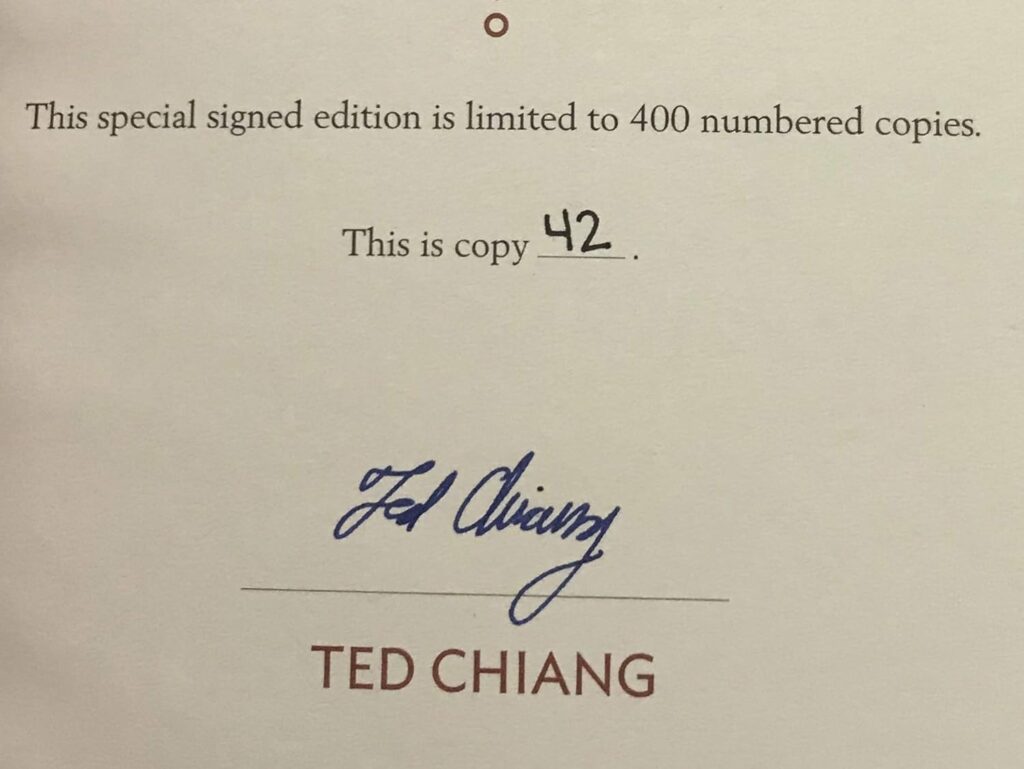
This novella focuses on the development of digital pets called digients, designed to evolve and learn over time. As these artificial beings grow more complex and start developing personalities, their human caretakers face ethical and emotional dilemmas about their responsibility and the rights of their digital companions. Chiang’s story is a moving exploration of the relationship between creators and their creations, raising questions about love, companionship, and the boundaries of artificial intelligence.
You Might Also Like:
- Discover Your Next Great Read: New York Times Best-Selling Books
- 7 Must-Read Books Before Turning 25
- Crack the Code to Wealth: “The Algebra of Wealth” by Scott Galloway
- Discovering True Wealth in The Book ‘The Wealth Money Cannot Buy’ by Robin Sharma (Book Summary)
- Book Summary: Just the Good Stuff by Jim VandeHei – Redefining Success
- 7 Must-Read Books for Money Management